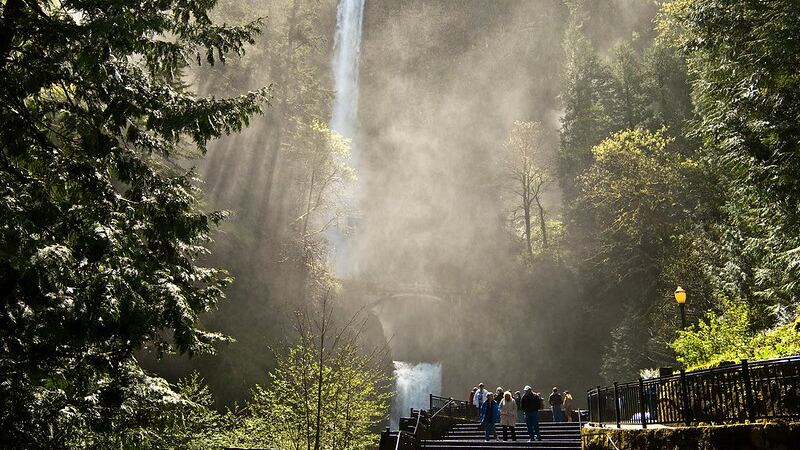The Columbia River Gorge is fair game once again.
Timed-use permits are no longer necessary to visit the waterfall corridor—home to some of the most popular trails in the state. The seasonal program officially came to an end Sept. 6 following Labor Day weekend, which marks the unofficial conclusion of summer and, for some, frequent outdoor recreation.
You also no longer need a permit to visit one of Oregon’s biggest tourist draws: Multnomah Falls.
This should come as good news for hikers and sightseers who found the passes to be a hassle. While there were plenty of ways to ditch the car and get to the Gorge (public transit, the Gray Line Waterfall Trolley, bike), they were likely more time consuming than most people prefer.
Multiple agencies, including Multnomah County, the Oregon Parks and Recreation Department, the Oregon Department of Transportation, and the U.S. Forest Service, launched the permit program this year with the goal of creating a more enjoyable experience for people visiting an area that’s typically clogged with cars throughout summer. The requirement of passes for drivers was designed to spread visitation throughout the day.
The system went into effect May 24, which meant anyone driving a personal vehicle while trying to access federal lands between the Bridal Veil off-ramp (Interstate 84 exit 28) and Ainsworth State park (exit 35) needed to obtain a pass either online or in person at locations like the Gateway to the Gorge Visitor Center in Troutdale and the Cascade Locks Historical Museum. Each came with a $2 transaction fee. While there was timed entry, visitors could stay in the 18-mile stretch of land as long as they liked after arriving.
The U.S. Forest Service announced on social media today that multiple agencies will evaluate the two permit programs over the winter to determine whether modifications are needed. You can even help them with their assessment by taking this survey.

